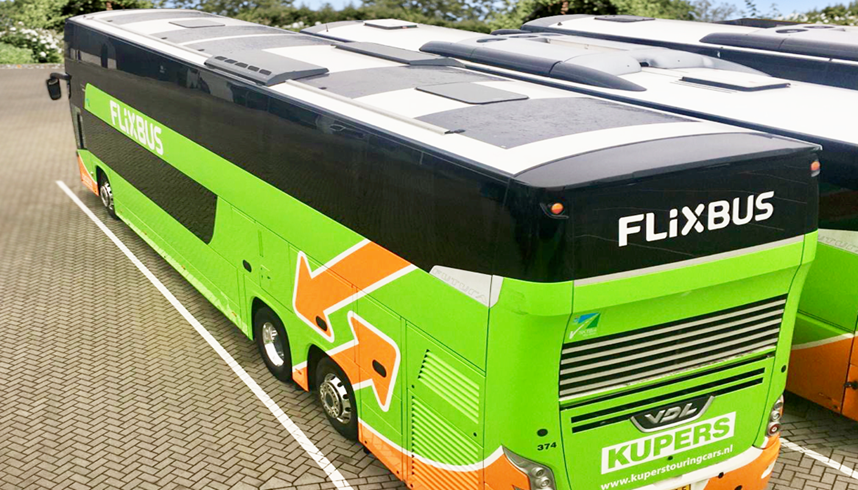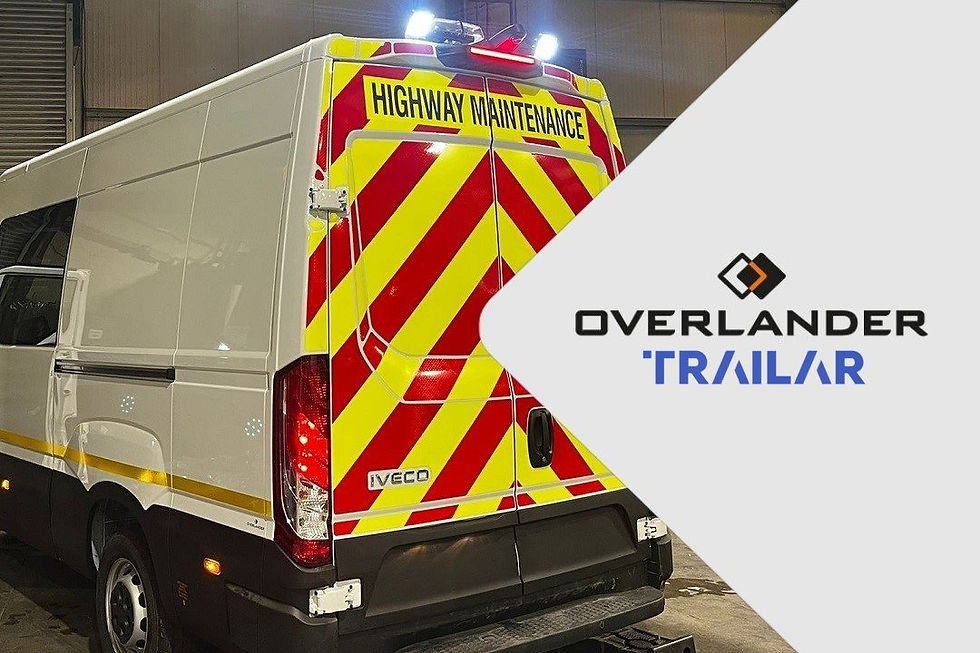FLIXBUS saves 7% fuel with TRAILAR
- TRAILAR
- Feb 7, 2020
- 2 min read
Updated: Feb 13, 2020

FlixBus has equipped a first international bus that runs between Dortmund and London with TRAILAR's solar solution.
In this pilot project, FlixBus is working with TRAILAR, a DPDHL Subsidery that offers innovative transport solutions to reduce the environmental impact of commercial vehicles. The flexible solar mats have been specially developed for use in the transport sector and have already been installed to over 1,000 commercial vehicles by TRAILAR. FlixBus is the first to apply this technology to an international long-distance bus.
Technology: TRAILAR Solar Bus Solution
The TRAILAR solar mats installed on the roof of the FlixBus, are ultra-thin and lightweight to prevent air resistance. By means of a TRAILAR Smart Charge Controller placed in the FlixBus, the solar mats on the roof interface with the alternator in the bus. The alternator charges the bus battery using fuel. With the advent of new technology, this is now largely taken over by solar energy, relieving the alternator. During the trial period, an average of 1.7 litres of diesel was saved per 100 km. With an average distance of 600 kilometres per day, this is a daily fuel saving of around 10 litres. The solar panels are expected to produce more energy during the spring and summer months.
The battery, in turn, supplies the power consumption of all the electronics on board. As usual with FlixBuses, the bus with solar mats is also equipped with USB ports, sockets, air conditioning, wi-fi and a media entertainment system. Due to the installation of the new technology, all this equipment on board is now powered by solar energy. Not only the electricity of the bus runs on renewable energy but also the power consumption of the traveller. In this way, FlixBus travellers can charge their mobile devices with renewable energy - namely with the sun shining on the green bus.
Project Optimisation and Rollout
TRAILAR, Kupers Touringcars and FlixBus continue to regularly evaluate the results and improve the project. The technology is designed in such a way that the data, and therefore the yield, can be monitored. Circumstances can be optimised, ultimately reducing CO2 emissions as much as possible. Factors such as the route of the bus and the season influence the performance of the technology. The bus currently runs twice a week from Dortmund to London. From April, the bus will drive even more frequently and even daily during the holiday periods.
"We strive to travel as climate-neutral as possible and make climate-friendly travel accessible to as many people as possible," says Jesper Vis, Managing Director of FlixBus Benelux. "This pilot project with solar panels is just one in a series of initiatives and climate-friendly projects for our travellers. Based on the initial results, we will evaluate the extent to which we extend this pilot to more buses or even all buses in the network".




Comments